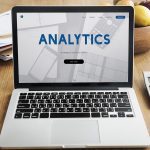Today's small businesses often have more numerous opportunities to employ data analysis than they might realize. Devices, appliances and equipment that maintain a constant connection to the Internet can often yield valuable information suitable for use in data analysis efforts. Being able to develop a clearer picture of their needs, situation and any opportunities that may be … [Read more...] about Why Enhanced Connectivity Offers the Opportunity for Superior Data Analysis
Big Data
Learn everything you need to know about big data. Find out how companies are using this revolutionary technology and what it means for your business strategy.
The Ethics of Big Data and the Latent Threat to Democracy
One of the most cliched, overused, yet poignant quotes comes from a dying Uncle Ben, speaking to Peter Parker on the eve of becoming Spider-Man: With great power comes great responsibility. Big Data and the IoT represent some of the most powerful technological advances that mankind has ever seen in its relatively short history. Social and cultural norms dictate that the … [Read more...] about The Ethics of Big Data and the Latent Threat to Democracy
How the Internet of Things Changes Big Data Analytics
The internet of things is going to have a dramatic and far-reaching impact on the world that we can't even imagine. By the year 2020, there will be somewhere in the vicinity of 28 billion sensors online. That's more than four per person. And from there it will only multiply. That means that there will just be tremendous amounts of data pouring in. More data then we can, at this … [Read more...] about How the Internet of Things Changes Big Data Analytics
The Day-to-Day Life of a Data Scientist
Many businesses and industries understand there is great potential ready to be unlocked in data science, so much so that they're eager to hire the best data scientists. Despite this, there is still a great deal of confusion about what exactly a data scientist does. Broadly speaking, data scientists use data to solve problems for the businesses and clients they work with, but … [Read more...] about The Day-to-Day Life of a Data Scientist
How New Technologies Are Challenging the Ad Industry Status Quo
They say that advertising isn't exact science and most of the times you need to be patient and hope for the best. This is obviously something that advertising companies would like their clients to believe indefinitely. Until recently, it was difficult to quantify results and a trial and error process was regarded as acceptable in most cases. Once again, technology came to the … [Read more...] about How New Technologies Are Challenging the Ad Industry Status Quo
What is big data?
Big data is a term that refers to the massive amount of digital data created and shared every day. Big data can transform how we live, work, and communicate. It can be used to improve everything from public health and urban planning to business and marketing.
Big data is also changing the way we think about privacy and security. The volume, velocity, and variety of big data present challenges and opportunities for organizations and individuals. Regardless, big data is here to stay, and its impact will only continue to grow in the years to come.
What is big data analytics?
Big data analytics is the process of turning large, complex data sets into actionable insights. Businesses use various analytical tools and techniques, including machine learning and statistical analysis, to do this.
Big data analytics can be used to improve decision-making in areas like marketing, operations, and customer service. It can also be used to identify new business opportunities and optimize existing processes. With the help of big data analysis, businesses can gain a competitive edge by using their data better.
Want to learn more about big data? Datafloq has courses available. Contact us to get started.
When was big data introduced?
The term big data was coined in the 1990s, with some giving credit to John Mashey for popularizing the term. However, the concept of big data has been around for much longer.
Where does big data come from?
In the early days of computing, scientists and businesses began to realize that the amount of data being generated was increasing exponentially. As a result, they began to develop new methods for storing and processing data.
Over time, these methods have become increasingly sophisticated and have played a key role in enabling businesses to make sense of vast amounts of information. Today, big data is used in various industries, from retail to healthcare, and its importance is only likely to grow in the years to come.
What are examples of big data?
One of the most common examples of big data is social media data. With over 2 billion active users, Facebook generates a huge amount of data every day. This includes information on user interactions, posts, and even location data. Analyzing this data can help companies better understand their customers and target their marketing efforts.
Another example of big data is GPS signals. These signals are constantly being generated by devices like cell phones and fitness trackers. When combined with other data sets, GPS signals can be used to provide insights into everything from traffic patterns to human behavior. Finally, weather patterns are another type of big data set. By tracking these patterns over time, scientists can better understand the impact of climate change and develop strategies for mitigating its effects.
How do companies use big data?
Companies use big data in marketing, product development, and customer service. By analyzing large data sets, businesses can identify patterns and trends that would be otherwise difficult to spot. For example, a company might use big data to track customer behavior patterns to improve its marketing efforts.
Alternatively, a company might use big data to improve its products by identifying areas where customers are most likely to experience problems. For instance, big data can be used to improve customer service by finding pain points in the customer journey. Ultimately, big data provides companies with a valuable tool for gaining insights into their business operations.






